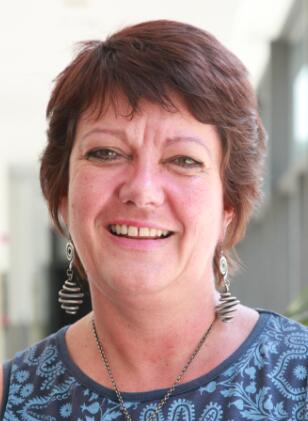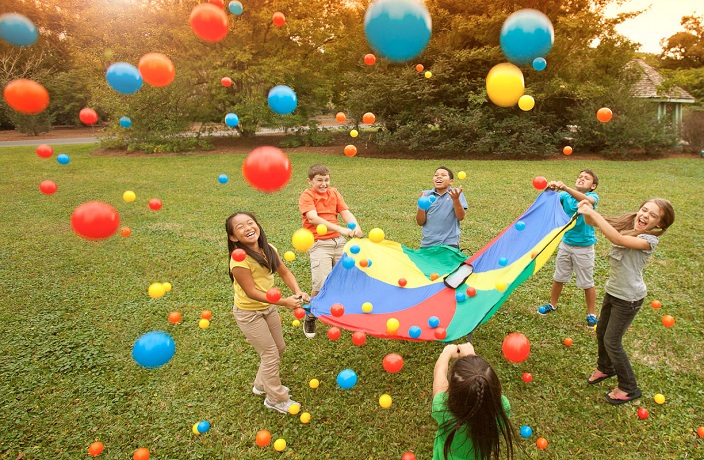When it’s time to assess the standard of a school, there is one big area that parents have previously overlooked - health. Perhaps you have taken scrupulous care of health concerns at home, but most likely your child spends more time at school than anywhere else. Especially in Shanghai, where the air pollution can influence outdoor activities in the winter season, where almost every international school has their own catering facility, where a multicultural community can further complicate peer pressure and school bullying, the importance of wellness at school is self-evident. And the more schools work on promoting and implementing a healthy environment, the better a child can concentrate on their academic performance and other areas.
 To give our parent readers a comprehensive picture of health at school, we speak with Susan Morrell Stewart, Secondary Counselor at Western International School of Shanghai.
To give our parent readers a comprehensive picture of health at school, we speak with Susan Morrell Stewart, Secondary Counselor at Western International School of Shanghai.
Could you tell us about the extra-curricular or community-based activities that WISS employs to foster a bond between students and the school?
Our WISS community is very much driven by the IB philosophy, which encourages students to be caring and open-minded communicators. At WISS we have a number of community outreach projects and our most successful ones are Saturday School and the Cambodia Project, as both provide a service link between our school and the community at large.
WISS Saturday School is held for Primary School children of local Xu Jing migrant workers, and classes are run by both students and parents. The local students love coming into our campus to use WISS’s facilities, and our students and parents gain so much, not only from teaching English but also having fun with music and art in the small group classroom situations.
During the Spring holiday, many WISS staff and students travel to Cambodia to support a village development project that involves building housing structures, agriculture foundations, medical services and library facilities. This is sponsored by parent fund-raising initiatives at the school and allows students to not only experience life in another country, but also learn the importance of empathy and how services like this have reciprocal rewards.
An international school is a ‘mini-world’ community; what can a school do to maintain a harmonious environment and build mutual respect among different cultural and religious backgrounds?
A healthy community is the result of everyone in the community – staff, parents and students – caring about each other and working together for the overall greater good. The more we understand about the world around us, the more we understand ourselves. As an international school, WISS is certainly a ‘mini-world’ community. The fact that our school includes a vast range of nationalities makes it easier for us to cultivate global citizens who possess a better understanding of different cultures, languages, religions and how personally, each individual fits into this mix.
WISS celebrates this diversity not only at our International Day where families from different countries are encouraged to educate the community about their culture, food and customs; but also in the classroom where our interdisciplinary projects provide our students with opportunities to explore and discover more about other religions and cultures.
Is there a language barrier between students who are English native speakers and those who are not? And if so, how can the school help these students eliminate the language obstacle?
Although WISS is an English medium school, it also offers a range of other languages. The school has representatives from 55 different countries resulting in a rich variety of languages, but English becomes the common language and bridges the communication barrier. The fact that new students can also join sports and creative arts interest groups (such as the Stoke Football Academy and International Schools Theatre Association), which don’t necessarily rely on language communication, also makes it easier for students to develop friendships across the language divide.
School bullying is a universal issue, can this issue be prevented and how?
Of course all schools experience bullying, but we believe encouraging a culture of caring and consideration helps make students think before they say or do hurtful things to others. Our school policy encourages students not to be bystanders, and commends students to stand up if they see others being treated badly. This is a tough principle for young children and adolescents to always put into practice, but awareness and education about bullying and its effects is something we, as a school, continually work on.
What are the benefits of parents being actively engaged in their child’s campus life?
At WISS, many of our parents are involved in helping with school activities both in and out of the classroom. It really helps students’ self-esteem when they know their parents are interested in their school and their activities. It also makes communication easier, as families have more frames of reference to chat about, particularly in the teenage years when parent-child communication often becomes more challenging.
Susan Morrell Stewart has been involved in education for 25 years, loves the energy of youth and believes schools need to develop well-balanced individuals. Her Fulbright Distinguished Award in Teaching scholarship was a formative part of her profession, and she greatly values cross-cultural understanding. Ms. Stewart is now Secondary Counselor at Western International School of Shanghai.

















